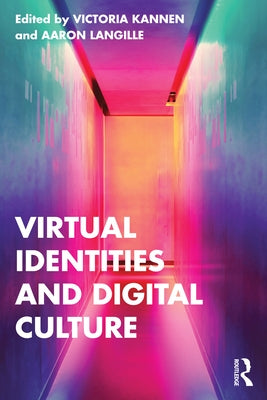Description
Virtual Identities and Digital Culture investigates how our online identities and cultures are embedded within the digital practices of our lives, exploring how we form community, how we play, and how we re-imagine traditional media in a digital world.
The collection explores a wide range of digital topics - from dating apps, microcelebrity, and hackers to auditory experiences, Netflix algorithms, and live theatre online - and builds on existing work in digital culture and identity by bringing new voices, contemporary examples, and highlighting platforms that are emerging in the field. The book speaks to the modern reality of how our digital lives have been forever altered by our transnational experiences - one of those key experiences is the pandemic, but so too is systemic inequality, questions of digital privacy, and the role of joy in our online lives.
A vital contribution at a time of significant social and cultural flux, this book will be highly relevant to those studying digital culture within media, communication, cultural studies, digital humanities, and sociology departments.
Author: Victoria Kannen
Publisher: Routledge
Published: 02/28/2023
Pages: 266
Binding Type: Paperback
Weight: 0.85lbs
Size: 9.00h x 6.00w x 0.60d
ISBN13: 9781032315089
ISBN10: 1032315083
BISAC Categories:
- Social Science | Media Studies
- Psychology | Personality
About the Author
Victoria Kannen is a Professor in the Faculty of Arts and Equity, Diversity, and Inclusion Advisor of Research at Laurentian University in Sudbury, Ontario. She is the author of Gendered Bodies and Public Scrutiny: Women's Stories of Staring, Strangers, and Fierce Resistance (2021). She is also the co-editor of The Spaces and Places of Canadian Popular Culture (2019).
Aaron Langille is a Professor and Coordinator of the Game Design program at Cambrian College in Sudbury, Ontario. He is a regular columnist on CBC radio where he talks about games, technology, and the impact of our digital lives. He is currently writing two textbooks, one of which is on learning to program through analogies and, the other, is on learning to program through games.
This title is not returnable

